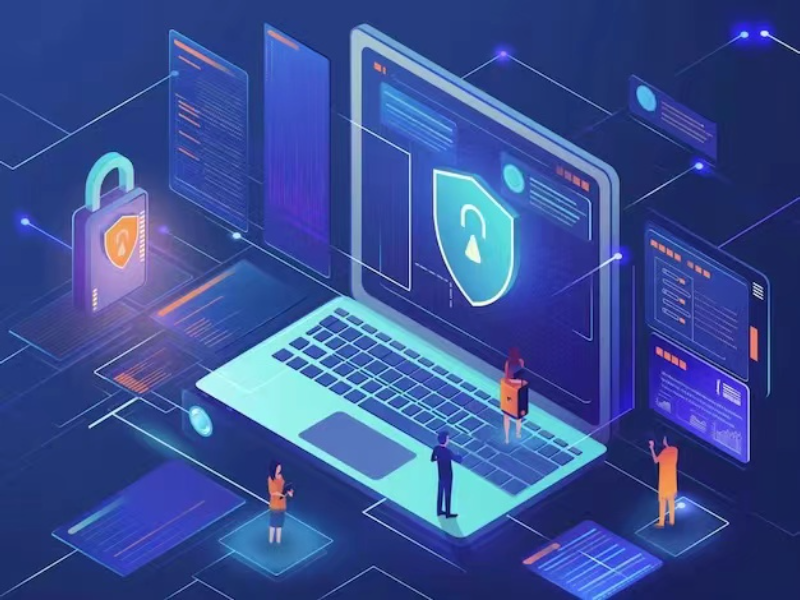- Cyber security, in an increasingly digital world, has become essential for protecting sensitive information and ensuring the integrity of systems and networks.
- By understanding and applying these security practices, individuals and organisations can better protect their digital assets and contribute to a safer digital world.
Cyber security has a wide range of applications, from protecting personal information and securing financial transactions to protecting healthcare systems. As cyber threats continue to evolve, the importance of implementing robust cyber security measures across all domains cannot be overstated. This article will introduce 5 applications of cyber security, underscoring its importance across different domains and industries.
1. Protecting personal information
The protection of personal information is the most widely discussed issue in Internet use. Individuals share a vast amount of personal data online, from social media profiles to online banking details. Cyber security measures, such as encryption which applies an unreadable coded format, and multi-factor authentication which adds an extra layer of security, ensure that this sensitive information remains confidential and secure from cyber criminals.
By employing these and other security measures, individuals can protect their personal information from unauthorised access and identity theft.
Also read: AR vs VR: What’s the difference?
2. Securing financial transactions
The financial sector is a prime target for cyber attacks, given the high value of financial transactions. Cyber security plays a crucial role in protecting financial institutions and their customers from fraud, data breaches, and other malicious activities. Financial institutions highly rely on a range of security measures, including secure payment gateways, fraud detection systems, and real-time monitoring, to safeguard transactions.
To be specific, secure payment gateways encrypt payment information during transactions, preventing unauthorised access. Fraud detection systems analyse transaction patterns to identify and flag suspicious activities. Real-time monitoring allows financial institutions to detect and respond to security incidents promptly, minimising potential damage.
3. Ensuring business continuity
For businesses, cyber security is vital for ensuring continuous operations and protecting intellectual property. Cyber attacks can disrupt business operations, leading to financial losses, reputational damage, and loss of customer trust. Implementing robust cyber security measures helps businesses prevent such disruptions and maintain business continuity.
Also read: Horizontal vs portrait: How should we hold our phones?
There are various cyber security practices for businesses. For example, security audits assess the effectiveness of existing security measures and identify potential vulnerabilities. Also, incident response planning prepares businesses to handle security breaches effectively, minimising downtime and damage.
4. Safeguarding critical infrastructure
Critical infrastructure, such as power grids, water supply systems, and transportation networks, is essential for the functioning of society. Cyber attacks on critical infrastructure can have severe consequences, including power outages, water contamination, and transportation disruptions.
Governments and organisations responsible for critical infrastructure implement various security measures, such as intrusion detection systems (IDS), firewalls, and access controls. IDS monitor network traffic for signs of malicious activity, while firewalls block unauthorised access to critical systems. Access controls restrict access to sensitive areas, ensuring that only authorised personnel can interact with critical infrastructure.
5. Protecting healthcare systems
The healthcare sector relies heavily on digital systems for patient records, diagnostic tools, and treatment planning. Protecting patient data and ensuring the integrity of healthcare systems are tasks cyber security measures work on. Healthcare providers use a range of security measures, including electronic health record (EHR) encryption, secure communication channels, and regular security assessments.
EHR encryption ensures that patient data remains confidential and secure. Secure communication channels protect the transmission of sensitive information between healthcare providers. Regular security assessments identify potential vulnerabilities in healthcare systems, allowing providers to address them proactively.

